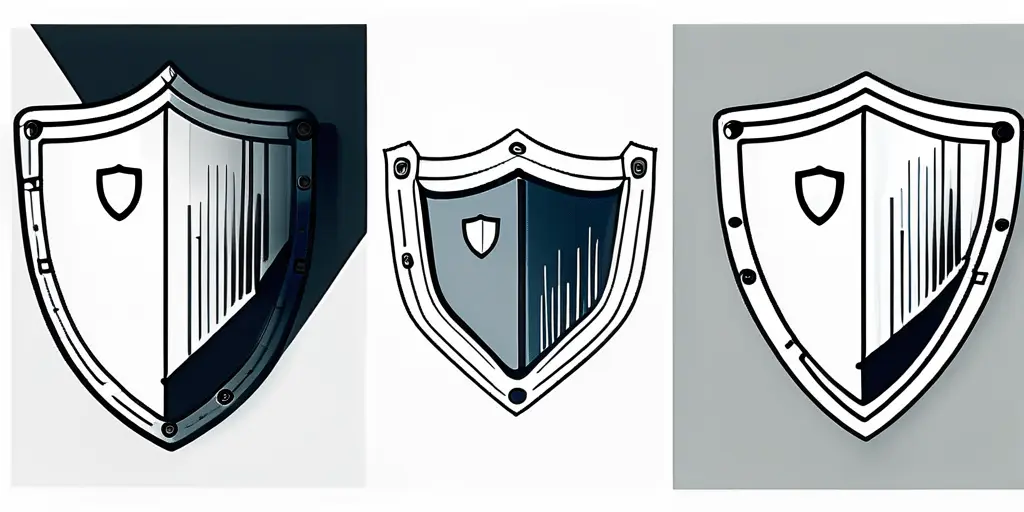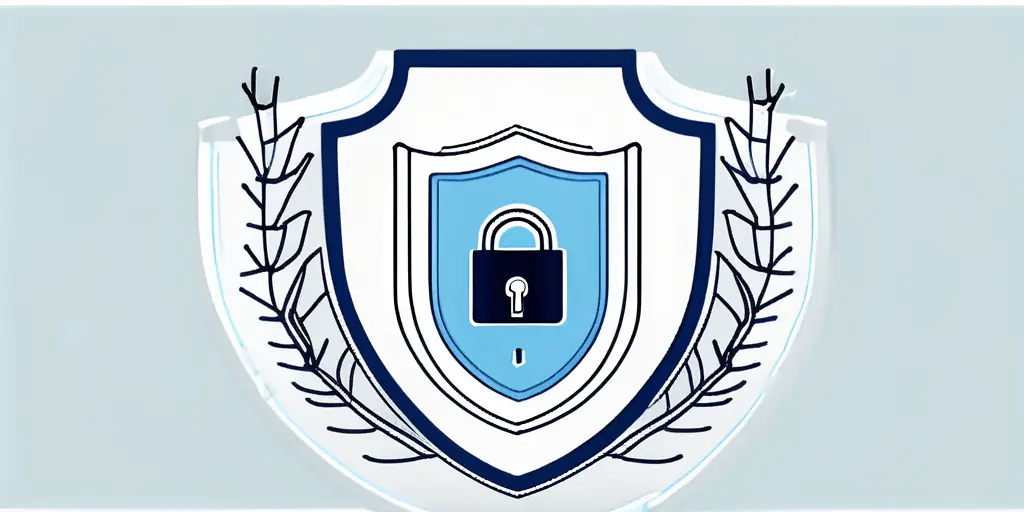The field of healthcare has undergone significant transformation with the advent of technology. From electronic health records to wearable devices, technology has revolutionized the way medical care is delivered. However, with these advancements come new challenges, particularly in the realm of cybersecurity. The rise of connected medical devices has opened up vulnerabilities that can be exploited by malicious actors. To address this issue, various cybersecurity standards have been developed, one of which is UL 2900.
Understanding the Basics of UL 2900
UL 2900 is a set of standards created by Underwriters Laboratories (UL), a global safety science company. These standards are specifically designed to assess and certify the cybersecurity of medical devices. UL 2900 provides manufacturers with guidelines to ensure that their devices are secure and protected against potential cyber threats.

When it comes to cybersecurity in the healthcare industry, the stakes are incredibly high. Medical devices are not only crucial for patient care but also store sensitive information that must be kept confidential. UL 2900 plays a vital role in addressing these concerns by offering a framework that evaluates the security posture of these devices comprehensively.
Definition of UL 2900
UL 2900 is a comprehensive cybersecurity standard that focuses on medical devices. It establishes criteria for evaluating the security of connected healthcare systems, including both hardware and software components. The standard covers a wide range of devices, including implantable devices, hospital equipment, and wearable sensors.
Moreover, UL 2900 is designed to be adaptable to the evolving landscape of cybersecurity threats. It takes into account the dynamic nature of cyber risks and provides a flexible approach for manufacturers to continuously improve the security of their products.
Importance of UL 2900 in Medical Devices
The significance of UL 2900 cannot be overstated when it comes to medical devices. With the increasing use of connected devices in healthcare settings, the need for robust cybersecurity measures has become paramount. By adhering to UL 2900 standards, manufacturers can ensure that their devices are secure and safeguard patient data from unauthorized access.
Furthermore, UL 2900 certification can also enhance the reputation of medical device manufacturers in the industry. It serves as a testament to their commitment to cybersecurity best practices and can instill confidence in both healthcare providers and patients regarding the safety and integrity of the devices they use.
The Role of UL 2900 in Cybersecurity
In an interconnected world, where cyber threats are becoming more sophisticated and prevalent, UL 2900 plays a crucial role in enhancing cybersecurity for medical devices.

With the increasing digitization of healthcare systems and the rise of Internet of Things (IoT) devices in medical settings, the need for robust cybersecurity measures has never been more pressing. UL 2900 sets the standard for ensuring that medical devices are developed, deployed, and maintained with security in mind, protecting both patient data and the integrity of healthcare operations.
Ensuring Software Security with UL 2900
One of the key aspects of UL 2900 is its focus on software security. The standard provides guidelines for developing secure software that is resistant to cyber attacks. By utilizing secure coding practices and conducting rigorous testing, manufacturers can mitigate the risk of software vulnerabilities that can be exploited by hackers.
Moreover, UL 2900 emphasizes the importance of ongoing monitoring and updates to software systems to address emerging threats and vulnerabilities. This proactive approach to software security ensures that medical devices remain resilient in the face of evolving cyber risks, safeguarding both patients and healthcare providers.
Addressing Cybersecurity Threats in Medical Devices
The cybersecurity threats faced by medical devices are diverse and constantly evolving. From ransomware attacks to unauthorized access to patient data, the consequences of a security breach can be severe. UL 2900 assists manufacturers in identifying and mitigating these threats by providing guidelines for risk assessment, vulnerability management, and incident response.
By incorporating the principles outlined in UL 2900 into their cybersecurity practices, medical device manufacturers can enhance the trustworthiness of their products and contribute to a more secure healthcare ecosystem. This proactive approach not only protects sensitive patient information but also ensures the reliability and safety of medical devices in critical healthcare settings.
The Certification Process of UL 2900
Obtaining UL 2900 certification is a rigorous process that involves multiple steps to ensure compliance with the standards.

UL 2900 certification is highly sought after in the cybersecurity industry due to its comprehensive evaluation of devices to ensure they meet stringent security standards. This certification provides assurance to consumers and businesses that the certified products have undergone thorough testing and meet the necessary cybersecurity requirements.
Steps to Achieve UL 2900 Certification
The certification process begins with an assessment of the device’s cybersecurity posture. This includes evaluating the hardware and software components, analyzing potential vulnerabilities, and conducting penetration testing to identify any weaknesses. Once the assessment is complete, remediation measures are implemented to address any identified issues. Finally, an independent third-party evaluation is carried out to determine if the device meets the requirements for UL 2900 certification.
During the assessment phase, cybersecurity experts meticulously review the device’s design and functionality to identify any potential entry points for cyber threats. This in-depth analysis helps to uncover vulnerabilities that could be exploited by malicious actors, allowing manufacturers to strengthen their products’ security measures.
Maintaining Compliance with UL 2900
Obtaining certification is just the beginning. To ensure ongoing compliance with UL 2900, manufacturers must establish robust cybersecurity practices and continually monitor their devices for any new vulnerabilities or threats. Regular updates and patches must be implemented to address emerging cyber risks.
Continuous improvement is key to maintaining UL 2900 certification. Manufacturers must stay abreast of the latest cybersecurity trends and best practices to enhance the security of their products. By investing in cybersecurity awareness and education for their teams, companies can proactively address potential threats and ensure their devices remain compliant with UL 2900 standards.
The Impact of UL 2900 on the Medical Device Industry
The adoption of UL 2900 has had a significant impact on the medical device industry, benefiting both manufacturers and patients.
UL 2900, developed by Underwriters Laboratories, is a set of cybersecurity standards specifically tailored for medical devices. These standards are designed to address the unique vulnerabilities and risks associated with healthcare technology, ensuring that medical devices are secure and reliable. The certification process involves rigorous testing and evaluation to verify compliance with these standards, providing manufacturers with a comprehensive framework for cybersecurity best practices.
Benefits of UL 2900 for Manufacturers
UL 2900 certification provides manufacturers with a competitive edge in the market. By demonstrating compliance with stringent cybersecurity standards, they can instill confidence in their customers. This, in turn, can lead to increased sales and improved brand reputation. Moreover, UL 2900 certification ensures that manufacturers have implemented robust cybersecurity measures, reducing the risk of costly data breaches and potential legal liabilities.
Furthermore, UL 2900 certification is not just a one-time achievement; it requires ongoing monitoring and updates to maintain compliance with evolving cybersecurity threats. This continuous improvement process helps manufacturers stay ahead of emerging risks and demonstrates their commitment to prioritizing cybersecurity in their products.
How UL 2900 Improves Patient Safety
Patient safety is a primary concern in healthcare, and UL 2900 plays a crucial role in enhancing it. By ensuring the cybersecurity of medical devices, UL 2900 helps prevent unauthorized access to patient data, protects against malicious attacks that could compromise patient care, and maintains the integrity and privacy of medical information. Ultimately, UL 2900 helps create a safer healthcare environment for patients.
Moreover, the implementation of UL 2900 standards can lead to greater interoperability among medical devices, improving the efficiency and effectiveness of healthcare delivery. When medical devices adhere to consistent cybersecurity protocols, healthcare providers can seamlessly integrate different technologies, leading to better coordination of care and more personalized treatment options for patients.
Future Trends in UL 2900 and Medical Device Security
As technology continues to advance, the field of medical device security will undergo further evolution. UL 2900 is expected to adapt to these changes and address emerging cybersecurity challenges.
Evolving Cybersecurity Standards
UL 2900 will likely continue to evolve to keep pace with the rapidly changing cybersecurity landscape. As new threats arise, the standard will be updated to provide manufacturers with the necessary guidelines to mitigate these risks effectively. This will ensure that medical devices remain secure in the face of increasingly sophisticated cyber attacks.
The Role of UL 2900 in the Future of Medical Devices
As the use of connected medical devices proliferates, the importance of UL 2900 will only increase. Manufacturers will need to stay abreast of the evolving standard to ensure that their devices remain secure and compliant. By doing so, they can contribute to the future of medical devices by providing safe and reliable healthcare solutions.
In addition to the evolving cybersecurity standards, there are several other factors that will shape the future of UL 2900 and medical device security. One such factor is the increasing reliance on artificial intelligence (AI) and machine learning (ML) in healthcare. AI and ML have the potential to revolutionize medical devices, enabling them to analyze vast amounts of data and make accurate predictions. However, with this increased connectivity and reliance on AI, the risk of cyber threats also grows. UL 2900 will play a crucial role in ensuring that AI-powered medical devices are secure and protected from potential attacks.
Furthermore, as the Internet of Things (IoT) continues to expand, the number of connected medical devices will skyrocket. From wearable health trackers to implantable devices, the IoT has the potential to revolutionize healthcare delivery. However, this interconnectedness also presents significant security challenges. UL 2900 will need to adapt to address the unique vulnerabilities and risks associated with IoT-enabled medical devices. This will involve developing guidelines and best practices specifically tailored to the IoT ecosystem, ensuring that these devices are secure and protected from cyber threats.
In conclusion, UL 2900 plays a pivotal role in the realm of medical device cybersecurity. The standard provides manufacturers with guidelines to ensure the security of their devices and protect against cyber threats. By adhering to UL 2900, manufacturers can bolster patient safety, enhance their brand reputation, and stay ahead of evolving cybersecurity risks. As technology continues to advance, it is vital for the medical device industry to prioritize cybersecurity and embrace standards like UL 2900 to create a secure healthcare environment for all.
As the landscape of medical device cybersecurity continues to evolve, it’s crucial to partner with experts who can navigate these complex waters. Blue Goat Cyber, a Veteran-Owned business, specializes in medical device cybersecurity, offering a range of services including penetration testing, HIPAA compliance, FDA Compliance, and more. Our team is dedicated to securing your business and products against cyber threats. Contact us today for cybersecurity help and ensure your medical devices meet the rigorous standards of UL 2900, safeguarding your technology and patients alike.


